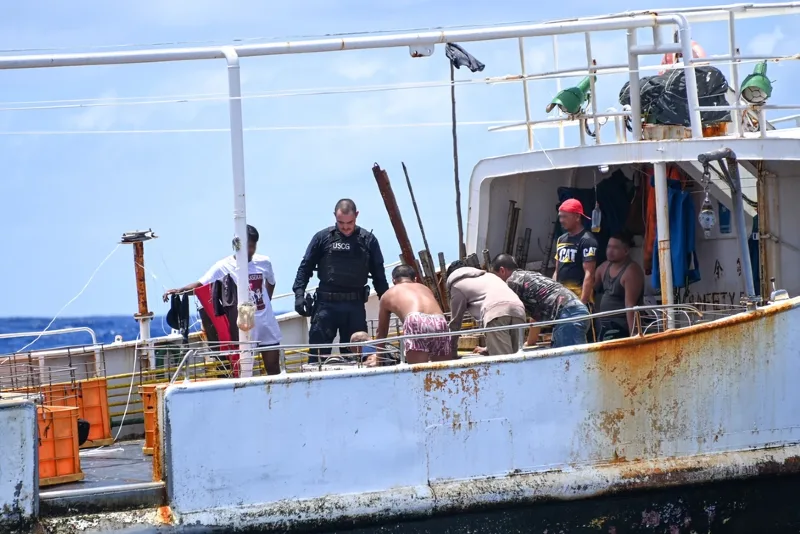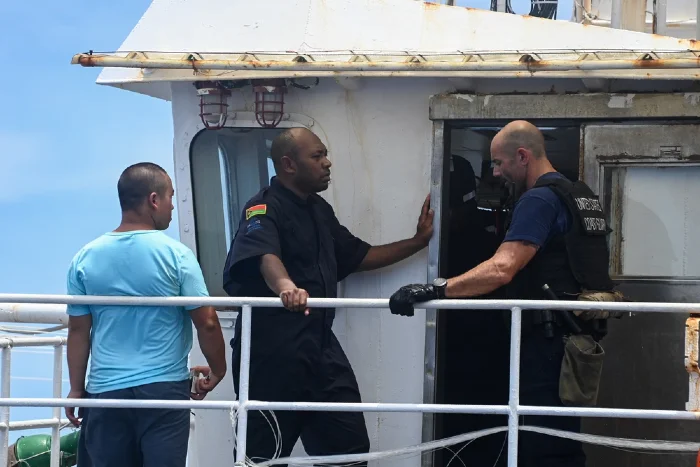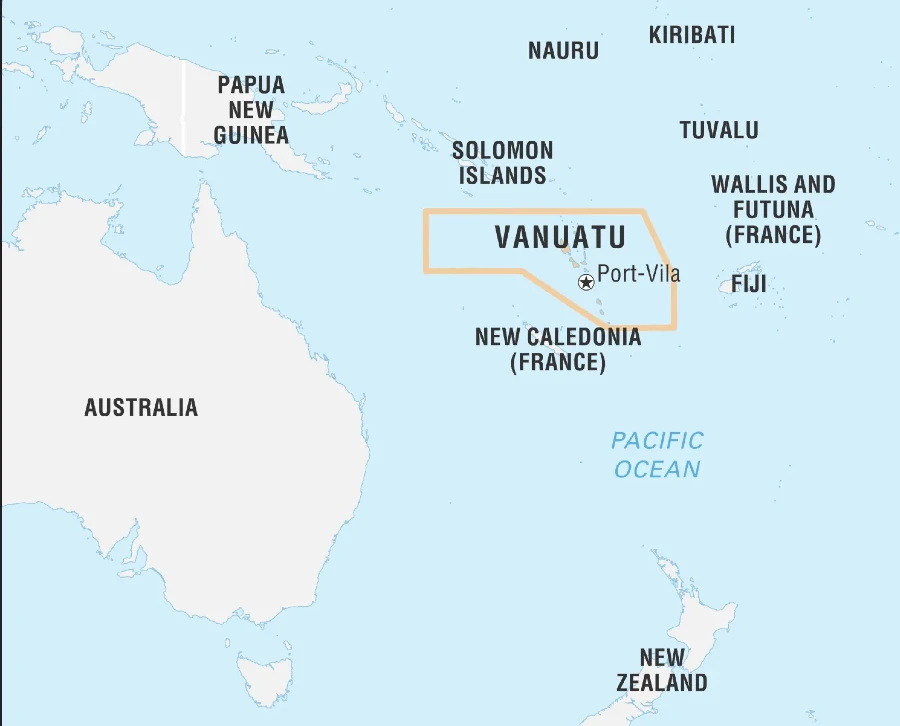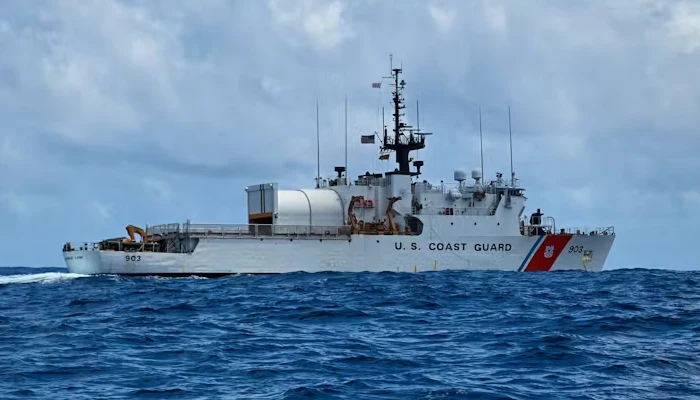In a significant operation highlighting concerns over illegal fishing, Vanuatu police, with assistance from the U.S. Coast Guard, have uncovered violations by six Chinese fishing vessels within Vanuatu’s exclusive economic zone (EEZ). This operation, marking the first time local authorities have been able to inspect Chinese boats in this area in years, reveals a broader issue with China’s fishing practices, which have faced international scrutiny before.
Violations included the failure to accurately log catches, an essential measure for monitoring and preserving marine life. This breach was particularly notable given the involvement of a vessel owned by the Chinese state-owned CNFC Overseas Fisheries, part of a joint venture with the Vanuatu government known as Sino-Van. This partnership had previously pledged to boost the local economy through a tuna cannery, underscoring the complex relationship between national interests and environmental stewardship.
Yakar Silas, a top official with Vanuatu’s Fisheries Department, announced that penalty notices would be issued to the implicated Chinese companies and their local agents. “Most violations were by Chinese fishing fleets… They are all Chinese vessels,” Silas stated, emphasizing the scale of the issue.

Despite these findings, the Chinese embassy defended the legality of the vessels’ operations, stating, “Chinese companies obey Vanuatu laws.” Furthermore, Sino-Van director Zhang Junwei communicated the Prime Minister’s support for the Sino-Van project, attempting to distance the joint venture from the implicated CNFC vessel.
The operation, carried out by the U.S. Coast Guard cutter Harriet Lane, comes at a time of heightened geopolitical tension, with China and the U.S. vying for influence in the Pacific Islands—a region of strategic importance. This backdrop adds layers to the incident, reflecting the intertwined nature of environmental, economic, and political interests.
This inspection also revives discussions about the promised economic benefits from such international partnerships, with the Chinese embassy highlighting job creation and improved living standards as outcomes of the Sino-Van venture.
The discovery of these violations by half of the inspected vessels casts a spotlight on the challenges of regulating international fishing operations and the ongoing struggle to balance economic development with environmental protection. “They did not properly report the catch in their catch logs,” reported Bianca Simeon, a Vanuatu maritime police inspector, underscoring a systemic issue with monitoring and enforcement in such critical areas.
As the Vanuatu government deliberates on the next steps, this incident serves as a reminder of the ongoing battle against illegal fishing practices and the importance of international cooperation in safeguarding the world’s oceans.

Vanuatu’s Complex Ties And Tough Situation
Vanuatu, a stunning archipelago nestled in the South Pacific, is known for its vibrant culture, lush landscapes, and crystal-clear waters. Comprising over 80 islands, this nation is a paradise for adventurers and nature lovers alike. Despite its idyllic setting, Vanuatu finds itself at the crossroads of global geopolitics, notably in its relationships with China and the United States.
The country has gained attention for its strategic significance, with both Beijing and Washington seeking to strengthen their influence in the Pacific Islands region.

China, as Vanuatu’s largest external creditor, has been involved in various infrastructure and development projects within the islands as the communist nation uses its financial resources to stretch its influence. This financial involvement has raised concerns about debt dependency and sovereignty, highlighting the delicate balance Vanuatu must navigate in managing its foreign relations.
Vanuatu’s ties with the United States, while not as financially entangled as those with China, have been cooperative in areas such as maritime security and environmental protection. The recent collaboration with the U.S. Coast Guard to patrol its waters and inspect fishing vessels reflects this partnership’s importance in safeguarding Vanuatu’s natural resources.
However, the relationship with China hasn’t been without its challenges. Incidents of illegal fishing, concerns over debt diplomacy, and political maneuvering have tested Vanuatu’s resilience and diplomatic acumen.
More To Discover
- EU Shakes Up Eco-Market: Bans ‘Greenwashing’ in Landmark Environmental Legislation
- Vanuatu Stops Chinese Logging Firm Amid Theft Claims and Workers In Chinese Military Uniforms
- Report Reveals Over Half of U.S. ‘Climate-Smart’ Farm Funds Do Nothing
- Saving the Northern Spotted Owl May Require Killing Barred Owls
In fact, just a few months ago, Vanuatuan authorities stopped a Chinese logging firm that was illegally cutting down and removing trees from protected land – not to mention the employees in Chinese military uniforms.
The country’s efforts to maintain its sovereignty while engaging with major powers underscore the complexities small island nations face in today’s interconnected world.



















